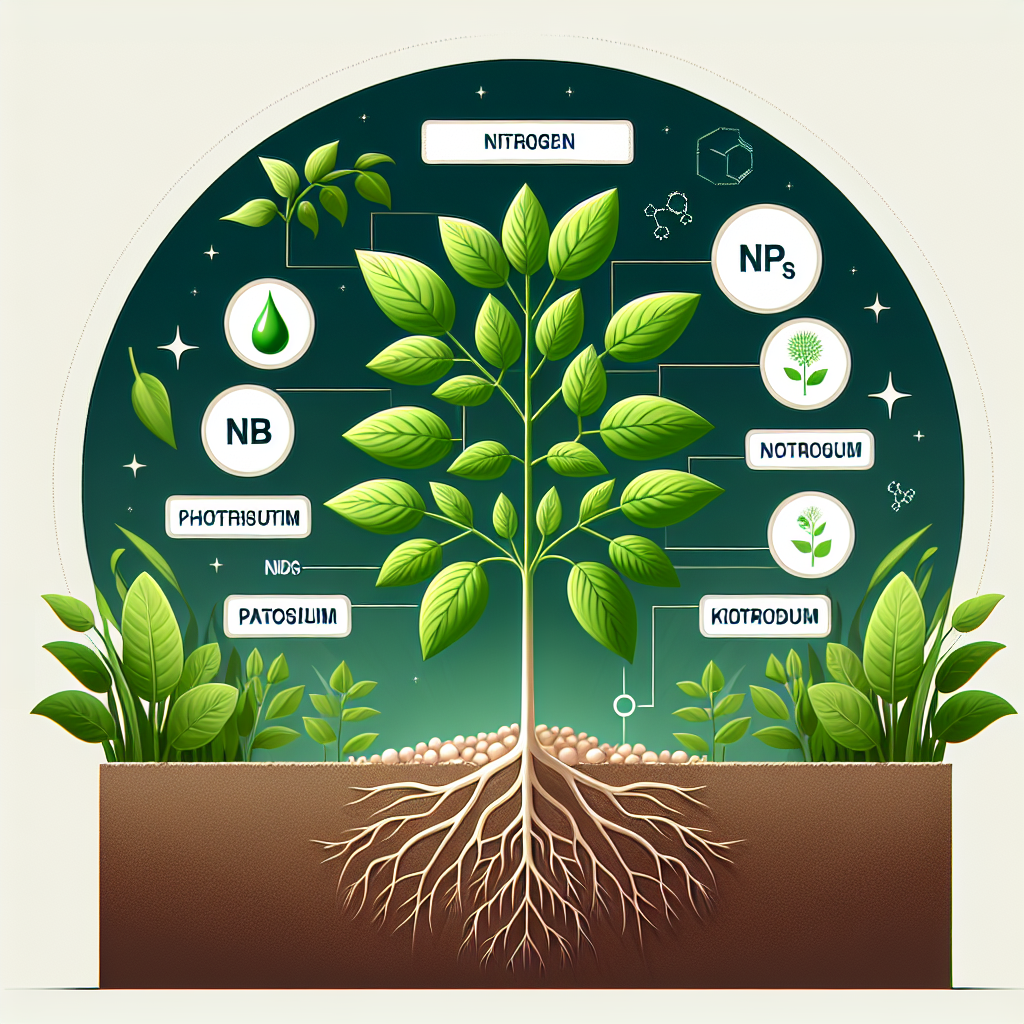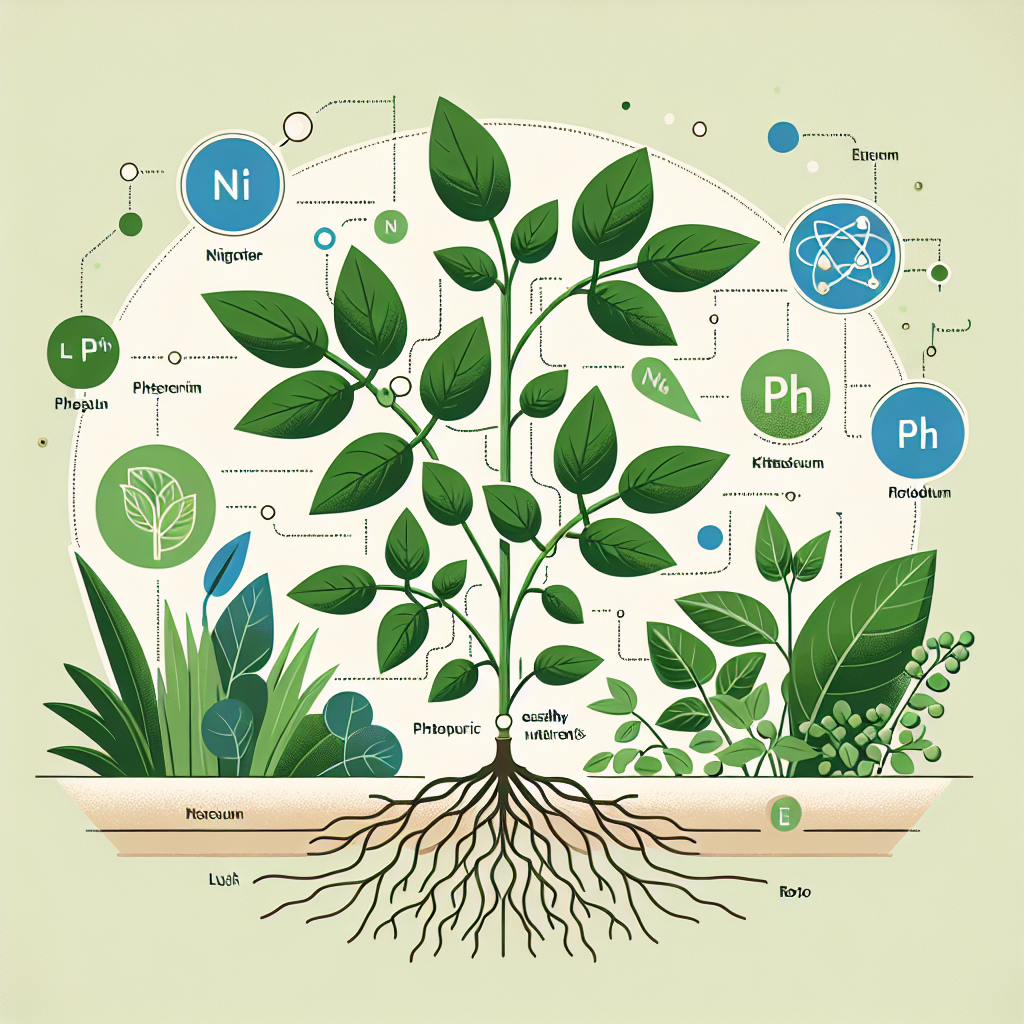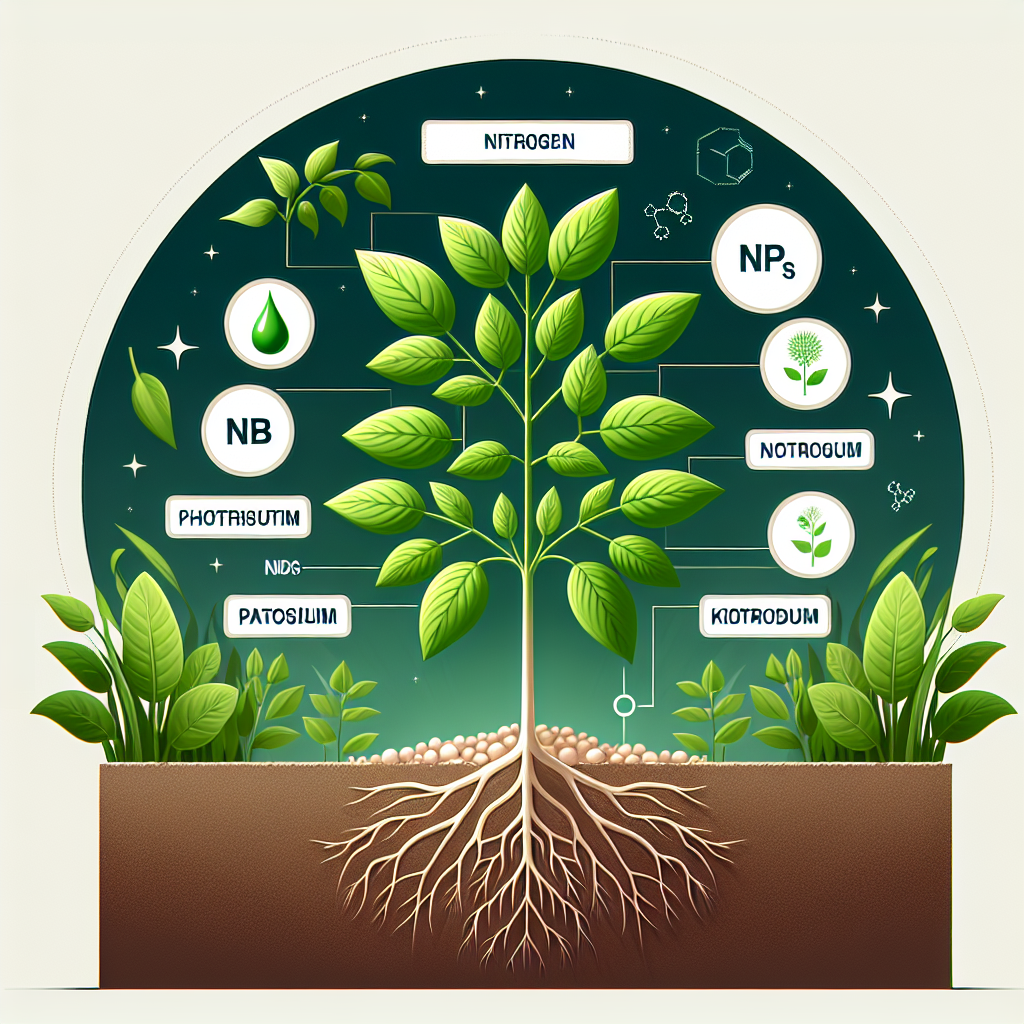Essential Nutrients For Healthy Plants

Essential Nutrients For Healthy Plants. You already know that plants need water and sunlight to thrive, but did you know that there are essential nutrients they require to stay healthy? In this article, you will discover the key nutrients that plants need for optimal growth and how they contribute to their overall health. From nitrogen to phosphorus, potassium to calcium, and everything in between, we will explore the vital role these nutrients play in keeping your plants strong and vibrant. Whether you’re a seasoned gardener or just starting out, understanding these essential nutrients is the first step towards cultivating a lush and thriving garden. So, let’s dig in and unlock the secrets to nourishing your plants for their best performance yet!
Macronutrients
Plants require a variety of nutrients for healthy growth and development. Macronutrients are essential elements that are needed in large quantities, and they play a crucial role in plant metabolism. The three primary macronutrients are nitrogen, phosphorus, and potassium.
Nitrogen
Nitrogen is a vital macronutrient for plants as it is a major component of proteins, chlorophyll, and nucleic acids. It plays a crucial role in various plant processes, such as photosynthesis, respiration, and enzyme activity. Nitrogen is necessary for the growth of leaves, stems, and roots, contributing to overall plant vigor.
Symptoms of nitrogen deficiency include yellowing of leaves, stunted growth, and reduced flowering. It is important to identify and address nitrogen deficiencies promptly to ensure healthy plant development.
Various sources of nitrogen include organic matter, such as compost and manure, as well as synthetic fertilizers. When applying nitrogen fertilizer, it is important to follow the recommended application rates to avoid overfertilization, which can harm the environment and lead to nutrient imbalances.
Phosphorus
Phosphorus is another critical macronutrient necessary for proper plant growth and development. It is an essential component of DNA, RNA, and ATP, which are essential for energy transfer and storage within the plant. Phosphorus is particularly important for root development, flowering, and fruit development.
Symptoms of phosphorus deficiency include stunted growth, purplish leaves, and delayed maturity. Inadequate phosphorus levels can severely impact plant growth and reduce overall yield.
Phosphorus can be obtained from organic sources, such as bone meal and rock phosphate, as well as from synthetic fertilizers. It is important to ensure proper phosphorus levels for optimal plant growth while considering environmental implications.
Potassium
Potassium, also known as potash, is a macronutrient that plays a vital role in numerous plant functions. It regulates water movement within the plant, helps maintain osmotic balance, and is essential for enzyme activation. Potassium also contributes to disease resistance and stress tolerance.
Symptoms of potassium deficiency include yellowing or browning of leaf margins, weak stems, and decreased fruit quality. Insufficient potassium levels can lead to reduced crop yield and overall plant health.
Potassium can be provided to plants through various sources, including organic materials like wood ash, as well as potassium-rich fertilizers. It is important to maintain the proper balance of potassium in the soil to support healthy plant growth and development.

Micronutrients
In addition to the macronutrients, plants also require micronutrients, albeit in smaller quantities. These essential elements are just as important for plant health and play a significant role in various physiological processes. The essential micronutrients include iron, zinc, copper, manganese, boron, and molybdenum.
Iron
Iron is a crucial micronutrient that plays a significant role in photosynthesis, respiration, and enzyme function. It is involved in chlorophyll synthesis and helps in the transport of electrons within the plant. Iron deficiency can lead to yellowing of young leaves, a condition known as chlorosis.
To provide sufficient iron to plants, various sources can be utilized. This includes iron chelates, iron sulfate, and organic materials such as compost. Proper iron levels are essential for optimal plant growth and development.
Zinc
Zinc is an essential micronutrient that is critical for enzyme activation and protein synthesis within plants. It plays a vital role in various metabolic processes and is necessary for proper hormone regulation. Zinc deficiency can result in stunted growth, reduced leaf size, and delayed maturity.
To address zinc deficiencies, zinc fertilizers can be used. Additionally, organic materials like manure can also provide zinc. Maintaining adequate zinc levels is crucial in supporting healthy plant growth and overall productivity.
Copper
Copper is another important micronutrient that contributes to enzyme activity, plant respiration, and lignin formation. It plays a vital role in various physiological and reproductive processes within plants. Copper deficiency may result in leaf chlorosis, reduced growth, and fruit abnormalities.
To ensure sufficient copper levels, copper-containing fertilizers or copper-rich organic materials can be used. Maintaining proper copper levels is essential for plant health and optimum productivity.
Manganese
Manganese is a micronutrient that is essential for photosynthesis, enzyme function, and nitrogen metabolism. It plays a crucial role in chlorophyll synthesis and acts as a cofactor for enzymes involved in energy production. Manganese deficiency may cause chlorotic spots on leaves, poor seed formation, and reduced growth.
To address manganese deficiencies, manganese sulfate can be used as a fertilizer. Incorporating organic matter into the soil can also provide a source of manganese. Ensuring proper manganese levels is crucial for healthy plant growth and development.
Boron
Boron is an essential micronutrient that contributes to cell wall synthesis, pollen tube growth, and carbohydrate metabolism. It plays a crucial role in various physiological processes, including nutrient uptake and hormone regulation. Boron deficiency may result in distorted growth, reduced root development, and poor fruit set.
To address boron deficiencies, boron-containing fertilizers or borax can be applied. It is important to maintain proper boron levels to support healthy plant growth and reproduction.
Molybdenum
Molybdenum is a micronutrient required for nitrogen metabolism and enzyme activation within plants. It plays a key role in nitrogen fixation and the conversion of nitrate into ammonia. Molybdenum deficiency may lead to yellowing of older leaves and stunted growth.
To provide sufficient molybdenum, molybdenum-containing fertilizers can be used. Additionally, incorporating organic matter into the soil can also contribute to molybdenum levels. Maintaining proper molybdenum levels is crucial for supporting healthy plant growth and nitrogen utilization.

Secondary Nutrients
In addition to macronutrients and micronutrients, plants also require secondary nutrients. These nutrients are necessary for plant growth and development, although they are needed in smaller quantities compared to macronutrients. The secondary nutrients include calcium, magnesium, and sulfur.
Calcium
Calcium is an essential secondary nutrient that contributes to cell wall structure, enzyme activation, and membrane function. It plays a crucial role in overall plant structure and stability. Calcium deficiency can lead to stunted growth, blossom-end rot in fruits, and weakened cell walls.
To provide sufficient calcium to plants, sources such as calcium carbonate and gypsum can be used. It is important to maintain proper calcium levels to support healthy plant growth and prevent related disorders.
Magnesium
Magnesium is another essential secondary nutrient that is crucial for chlorophyll synthesis, enzyme activation, and nutrient transportation within plants. It plays a vital role in numerous metabolic processes and is necessary for overall plant health. Magnesium deficiency may result in yellowing between leaf veins, reduced growth, and decreased fruit quality.
To address magnesium deficiencies, magnesium-containing fertilizers can be applied. Incorporating organic matter into the soil can also contribute to magnesium levels. Maintaining proper magnesium levels is vital for supporting healthy plant growth and development.
Sulfur
Sulfur is a secondary nutrient that is important for amino acid synthesis, protein production, and enzyme function within plants. It plays a crucial role in various metabolic processes and is involved in the production of vitamins and secondary compounds. Sulfur deficiency may lead to yellowing of leaves, reduced growth, and decreased crop quality.
To provide sufficient sulfur to plants, various sources can be used, including elemental sulfur and sulfate-containing fertilizers. Maintaining proper sulfur levels is vital for supporting healthy plant growth and optimizing nutrient utilization.
Conclusion Essential Nutrients For Healthy Plants
In conclusion, understanding the role and importance of essential nutrients in plant growth and development is crucial for successful gardening and agriculture. By addressing nutrient deficiencies promptly and ensuring a proper balance of macronutrients, micronutrients, and secondary nutrients, you can support healthy plant growth, enhance productivity, and maximize the overall quality of your plants. Remember to always follow recommended application rates and consider environmental implications when applying fertilizers or organic materials. With the right nutrient management practices, you can achieve thriving, vibrant plants that will bring joy and beauty to your garden or farm.



